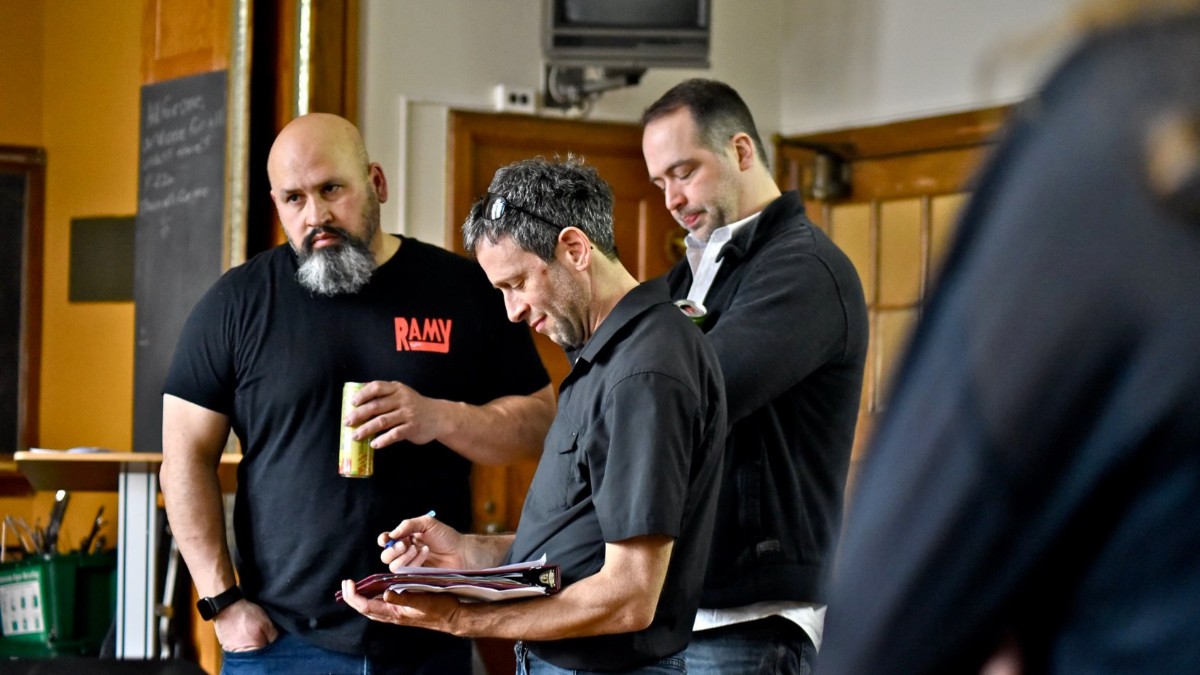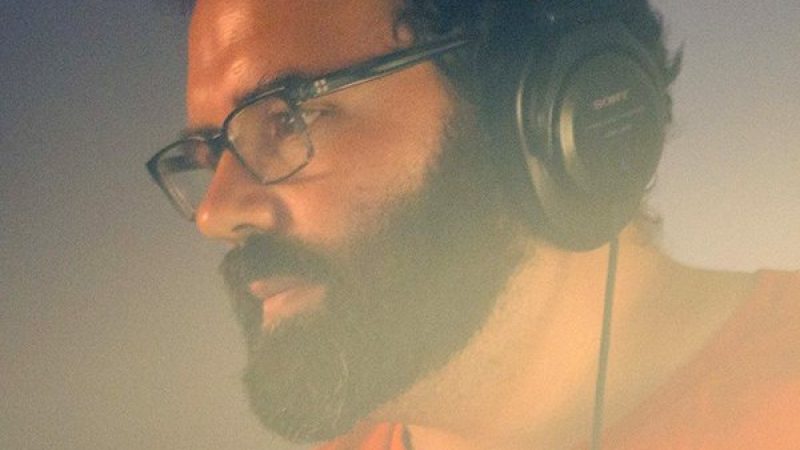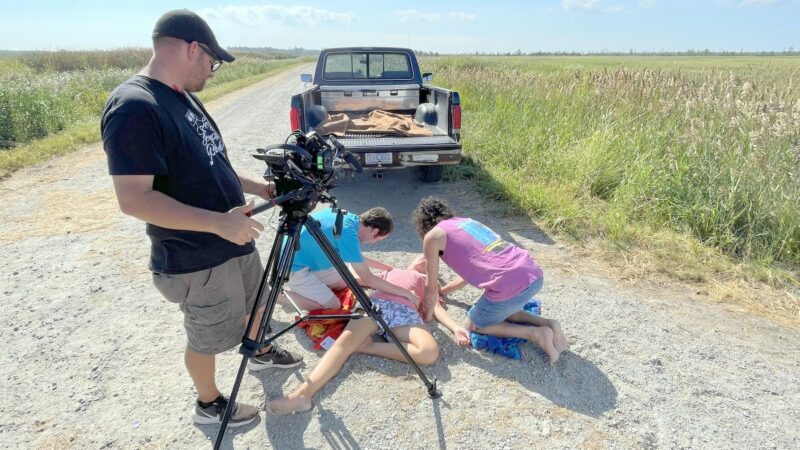
Some years ago – while listening to Bach’s 3rd Violin Sonata, I (Jon Rosenbloom) had an “ah-hah” moment. A short film script resulted. It seemed pretty good to me, and the few people I shared it with at the time. I had made a short film in 2010, “Pie” (available on Vimeo!) and, I understood that The Violin would be a considerably more complex, more expensive, production. So, it sat in the drawer for years, while my producer periodically nudged me to “get on with it”. I had worked the entire second season on “The Americans,” skipped season 3, but returned for good stretches of 4, 5, and 6. Trade secret, Matthew Rhys is a super nice, down-to-earth fellow, who would engage me about my little job on the show (dolly grip). I started thinking about him and that script sitting in the drawer. But, actors are busy, and “below the liners“ are “discouraged” from bothering “above the liners.” A full season passed, but, finally, we were waiting together for the bathroom, and Matthew asked what I was planning for when the show ended. “Well, I’ve got this script…” Immediately, he offered to read it, and – eventually – he said he wanted to do it.
Ok, if the guy who’s just won the Emmy for Dramatic Lead Actor wants to do your film, it’s time to do the film. After so much time in the drawer, the script was more like a found object than anything I had to do with creating. The tricky thing about this script is: Next to nothing happens in it, but people (including me) react to it. So, if I’m going to succeed in making an effective film, I have to understand to what I am reacting, and why.
Fortunately, turning a script into a film – the crucible of production – really forces you to answer those questions. The key was that the “plot” doesn’t quite add up; the hero is left out of the resolution that the audience gets. Whatever the “message,” it can’t be written in a neat sentence. This led me to realize, it’s kind of like a little piece of music – a Chopin nocturn, a Schubert impromptu – that you listen to late at night when the world has left you alone. It takes you through a sequence of emotions: bittersweet memory, guarded melancholy that is revealed to be deep despair (realized so beautifully in Matthew’s performance), turning to despondent defeat … and then … a little ray of hope in a cruel world.
With a more plotted script, the challenges are different: conveying geography, making sure the pieces fit, etc. On The Violin, my task as director was to land those emotions. They’re powerful, but they’re very quiet. Robert’s struggles are private, almost molecular. And, I really believe that people don’t go around advertising their emotions; they tend to guard them. (One of my notes to Matthew was that he should say his line about his divorce as if “Well, everybody gets a divorce.”) This is why I gravitated to Matthew; not because he is a name actor who was friendly, but because his work on The Americans was so much about showing the disguise AND the truth at the same time. So too with the look of the film: Simple, modest, but with the gravity and dignity of a cinema camera in studio mode, properly lit.
The last question was, “is it enough?” When you’ve written, shot, and edited an extremely personal film, it’s of course impossible to view it objectively. I’m not a fan of “notes,” but I’ve learned to focus on “Were you engaged? Did you feel something?” The script and film originally ended at the sanitation truck. I’m a strong believer in the audience filling in the blanks, but as the notes came in, it seemed like maybe I had left one too many. Some producer-director back and forth ensued, and we settled on an additional shot. Like the rest of this film, success hinges on its being “just right.” I’m not here to wrap things up in a neat bow. On the other hand, I’m not here to say “Life sucks, and then you die.” There’s good, there’s bad, and the private dramas of people navigating the million shades between are universal and worth exploring.
Every film is an experiment. I’ve always viewed The Violin as an experiment in turning less into more. We’ve just started our festival run, and I would love for people to see it on a big screen (that’s the “more” part of the equation), and not their devices. It’s a lot to ask because we’re living in a time of acute hardship and upheaval. And yet, I was inspired to make my film by a piece of music written almost 300 years ago, (in which the first three notes are just the C Major scale that develops into something very complex and moving), in times that were way more difficult than ours. I’m many rungs down the creative ladder from JS Bach, but I had the faith and support of Xavier, Matthew, Malcolm, Martha, and many others in helping me take my best shot at fulfilling that inspiration.
And, that’s the story of “The Violin.”
Tell us what you think of Jon Rosenbloom Directorial Musings on the making of THE VIOLIN. What are you thinking? What more information do you need? Do you have any suggestions? Or did this help you? Let’s have your comments below and/or on Facebook or Instagram! Or join me on Twitter.
MORE STORIES FOR YOU
In Conversation with Michael Oblowitz Director of Confidential Informant
Confidential Informant stars Mel Gibson, Dominic Purcell, and Kate Bosworth






